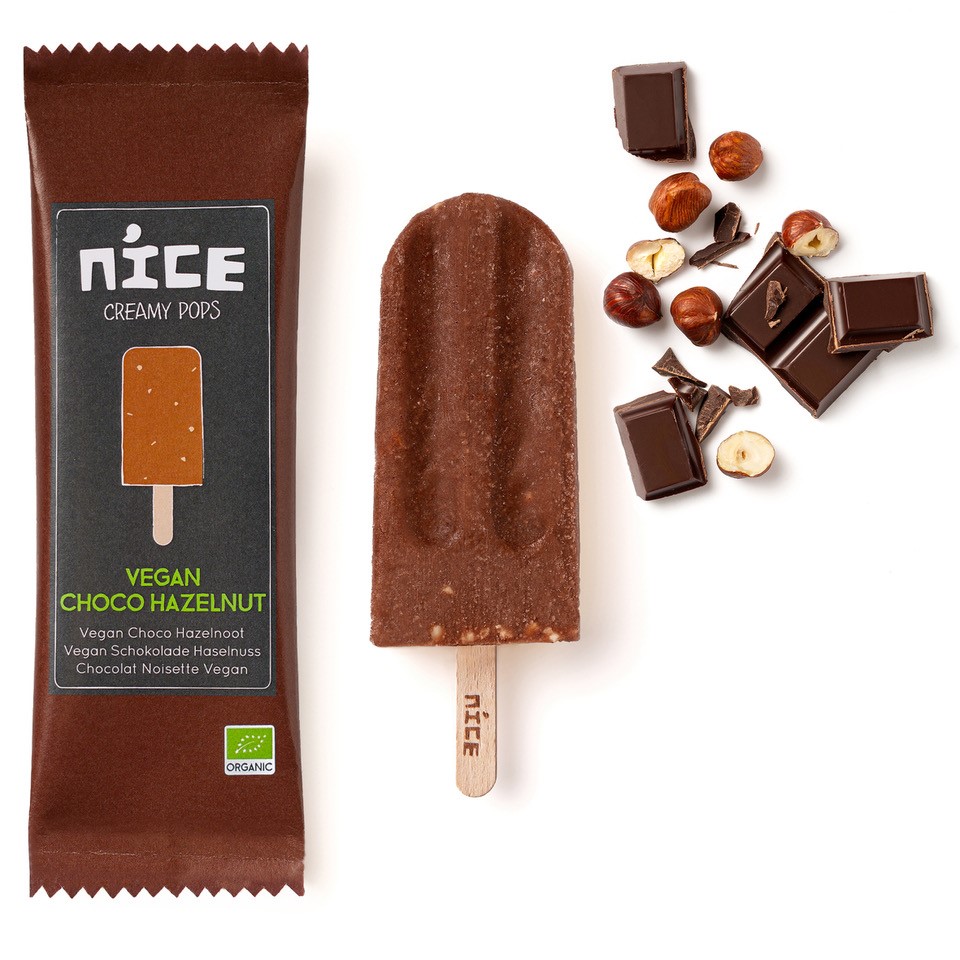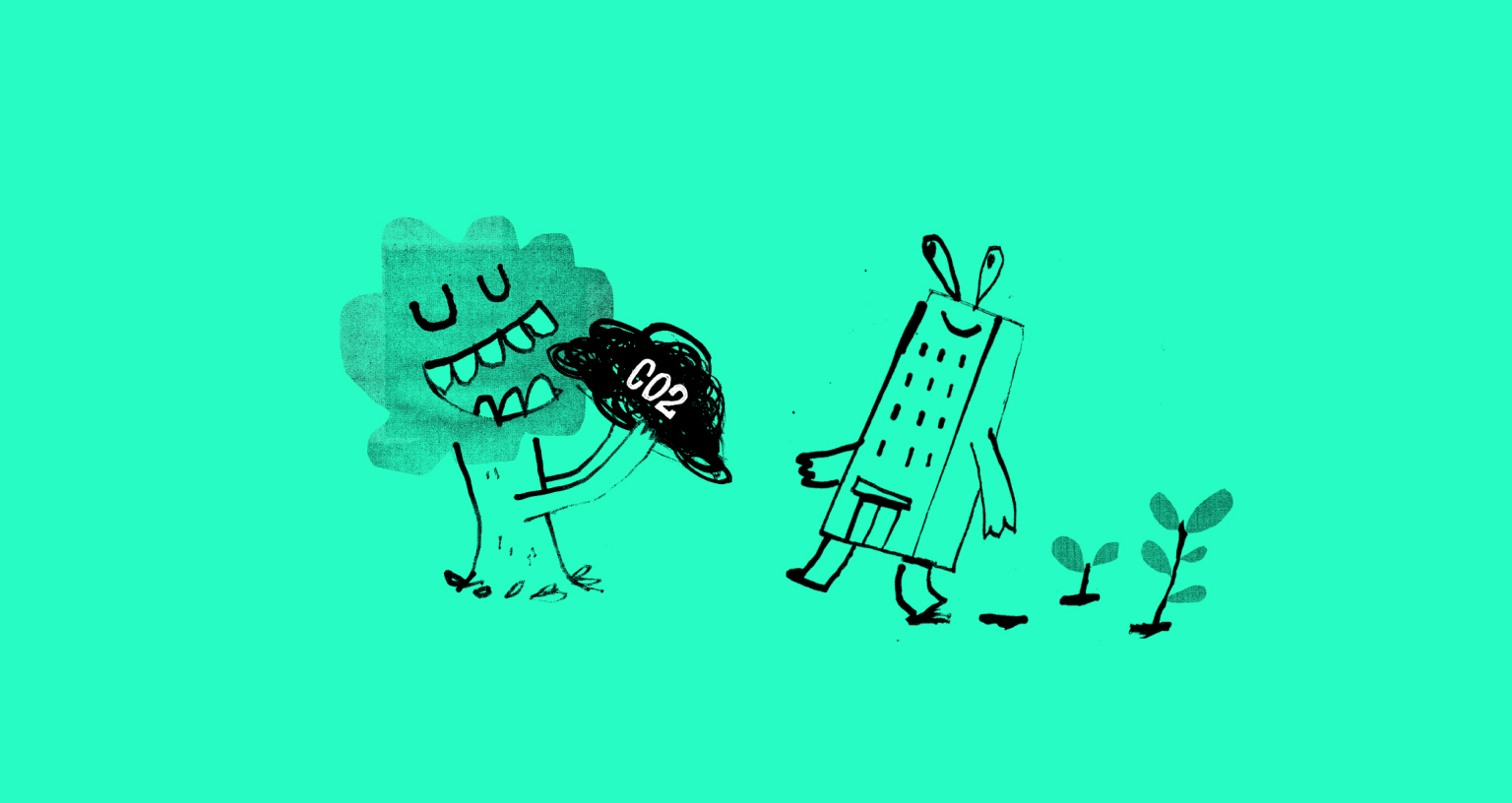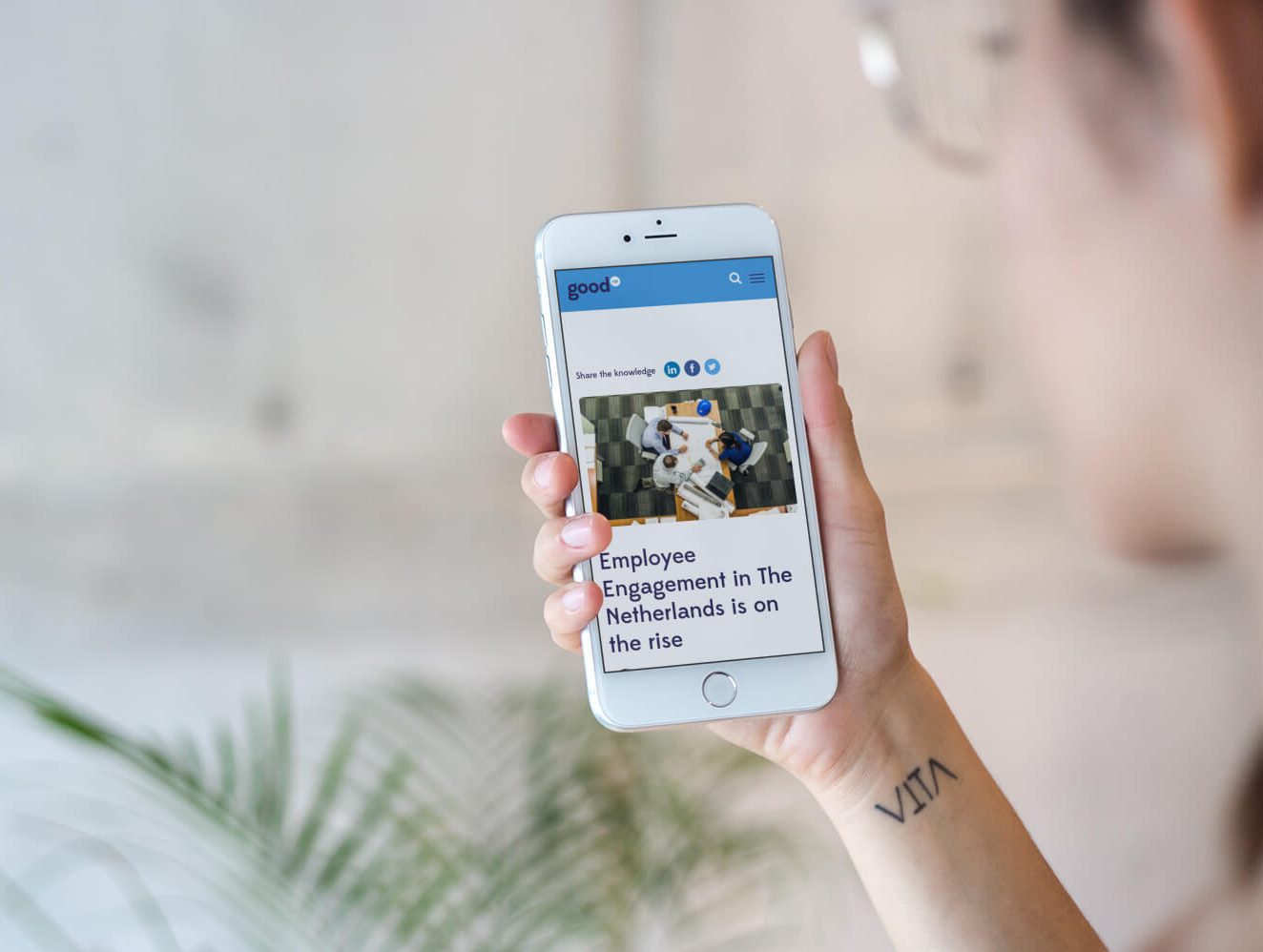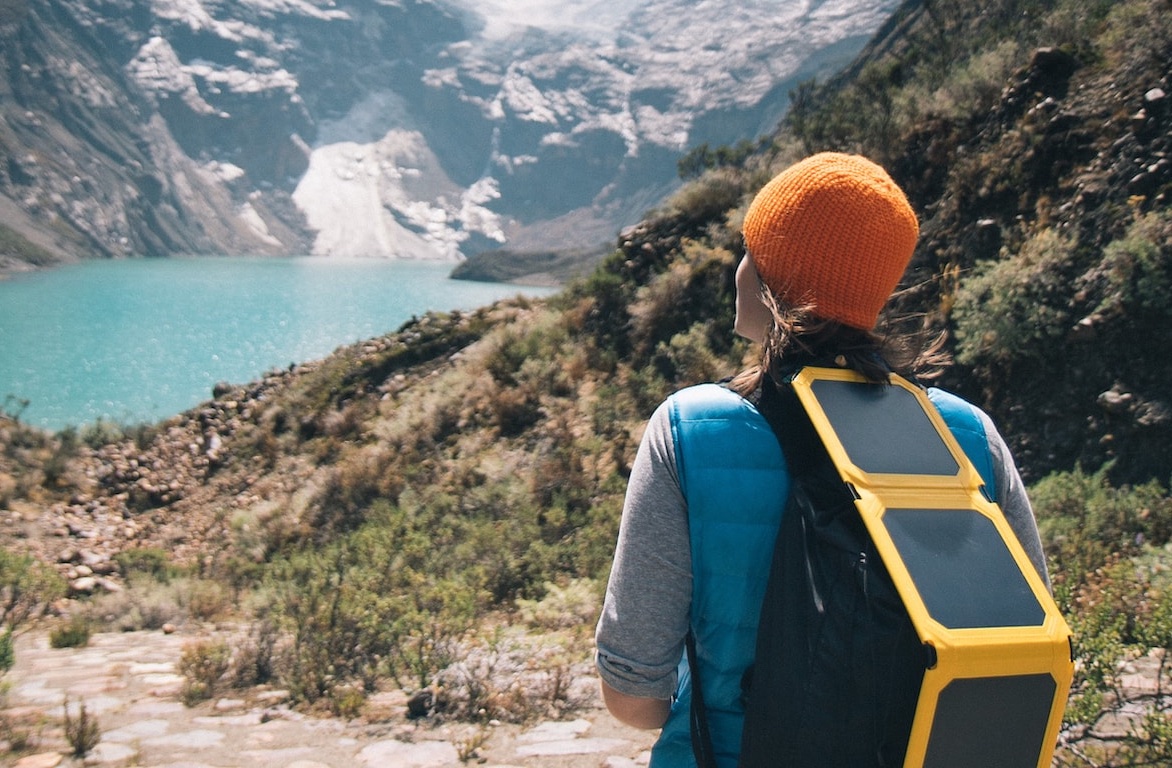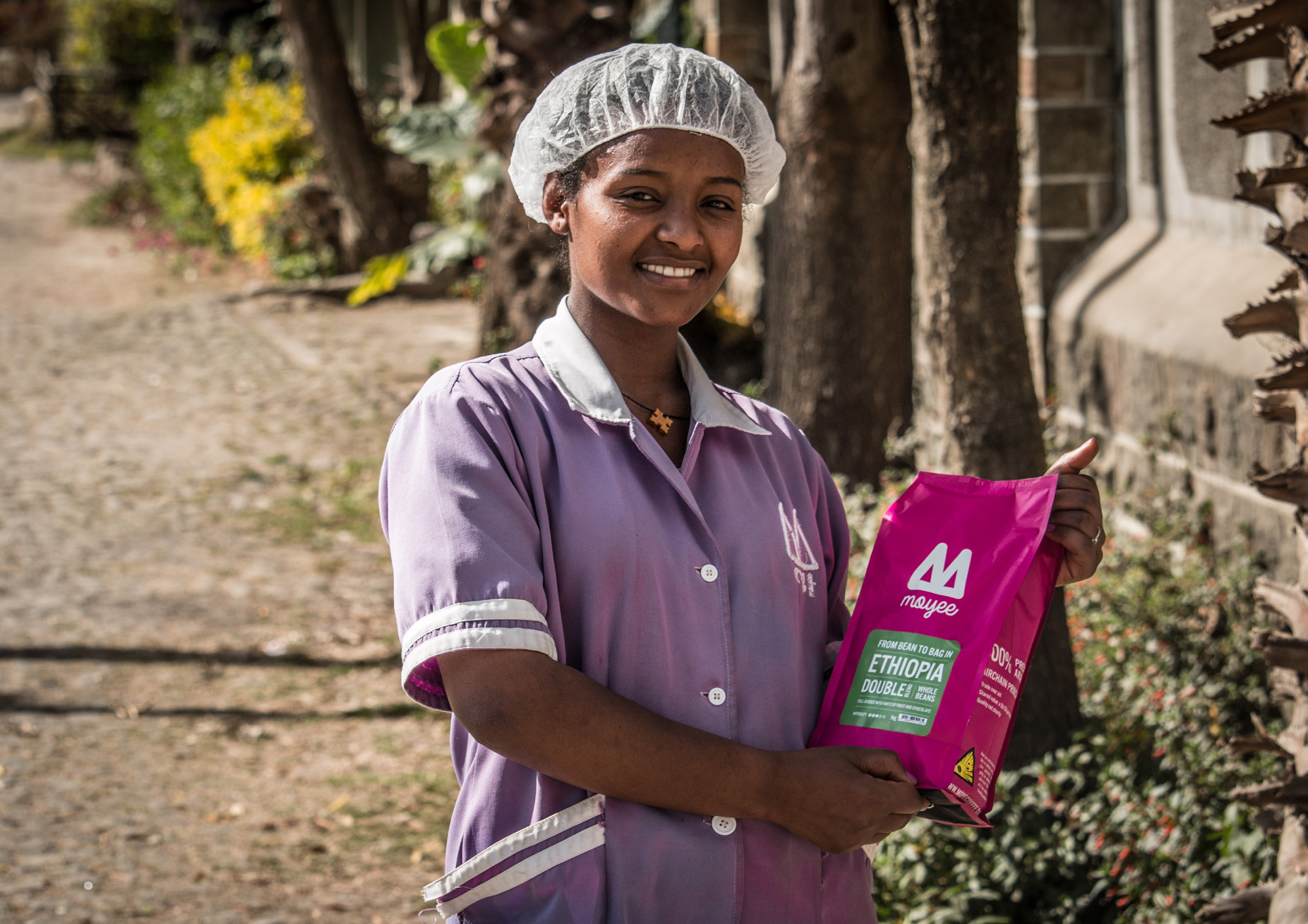This post is protected. To view it, enter the password below!
Goodwings: Growing a travel business during global Covid-19 pandemic
Project Case
Growing a travel business during global Covid-19 pandemic
Goodwings, a Certified B Corporation, is a hotel booking platform that enables Net Zero travel for business and leisure travellers. The amount of emissions of travels booked through the Goodwings platform, from transport to accommodation to breakfast (if booked), are removed completely. This empowers every customer to truly travel Net Zero. Goodwings wants to bring its offer to more countries. Expansion.eco is in charge of partner management in Germany.
Challenge
Getting partners excited about travel with many countries going into lockdown
Due to the Covid-19 pandemic, business travel was reduced to an absolute minimum. The travel industry’s revenues plummeted in 2020.
Although, the awareness for sustainability has increased due to the pandemic, for many, travel will continue to be part of life and work in the future. That’s why Goodwings takes traditional marketing money and instead utilises that money to remove CO2 through verified tree planting projects. So, by booking through Goodwings, you can travel completely Net Zero at the usual prices.
Net Zero refers to the balance between the amount of greenhouse gasses emitted by human activity and the amount removed from the atmosphere through mitigating actions. We reach Net Zero when the amount we emit is no more than the amount removed.
The Covid 19 pandemic is an opportunity for change. Companies can now set the right course for the future.
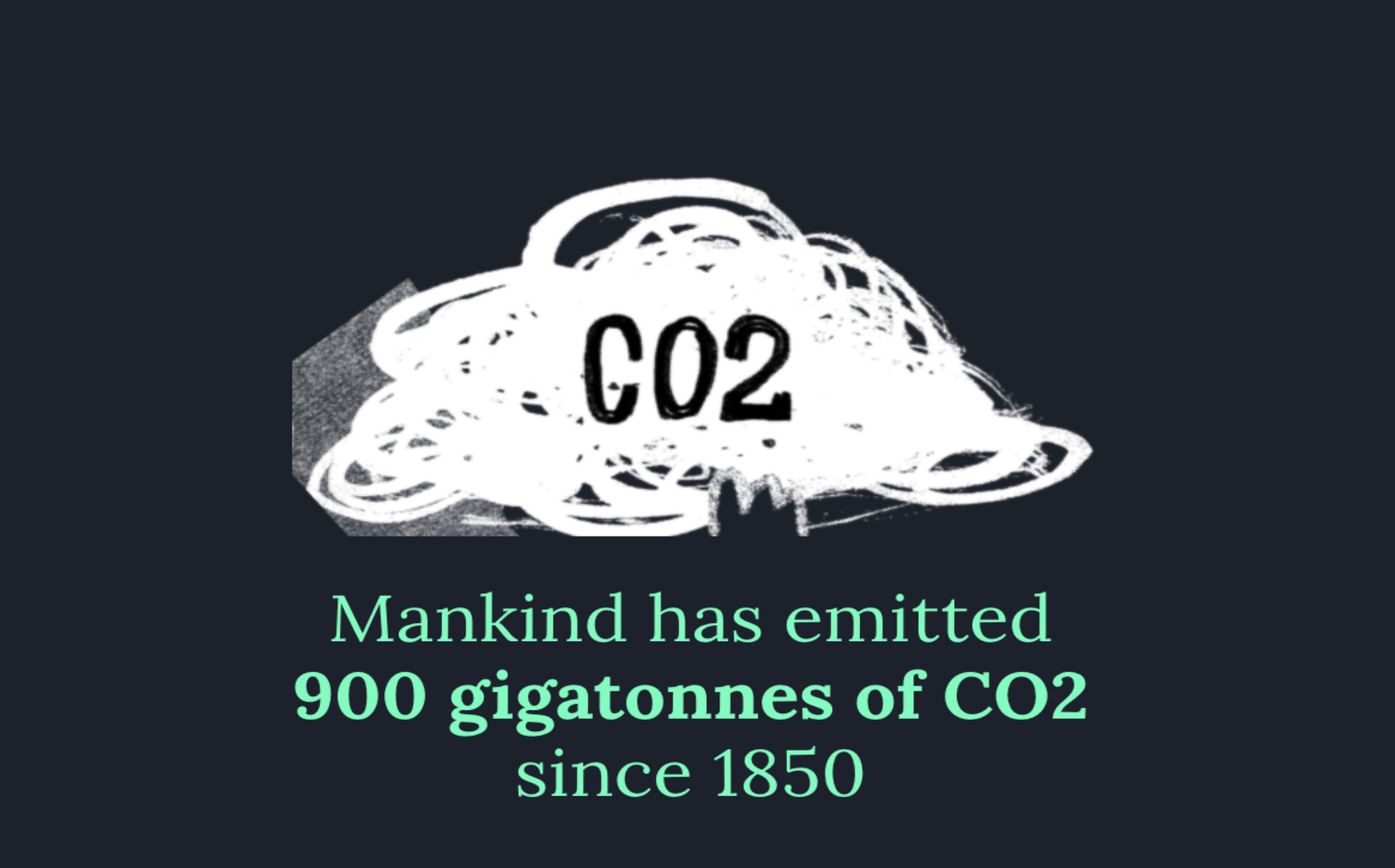
Process
Putting out Net Zero travel comes without extra costs and with benefits for every partner
Expansion.eco is approaching medium-sized and large companies in all sectors to help them make the switch to Net Zero travel with Goodwings.
Partner companies can either book their own business travel via Goodwings or enable their employees to book private travel with the portal. In both cases, the partner company can give employees a benefit through environmentally friendly travel and communicate Net Zero travel publicly.
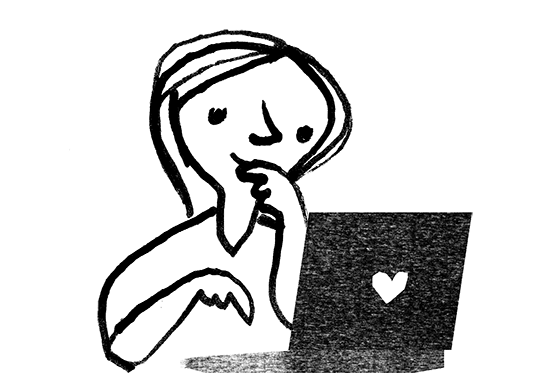
Offsetting travel is completely free of charge for partner companies. Only additional options such as an annual CO2 certificate or emissions reports become possible through monthly subscription fees.
Result
A major player joined forces with Goodwings to offer sustainable traveling for their employees already
With the GLS Bank, a major German player regarding Sustainability, on board, Expansion.eco is starting the German mission for Goodwings. The bank is one of the largest and oldest cooperative banks in Germany and will enable all its employees to travel Net Zero with Goodwings from summer 2021 on.
Expansion.eco is continuing its search for partners, whether small or medium-sized businesses or large companies. Anyone who wants to travel Net Zero is welcome.
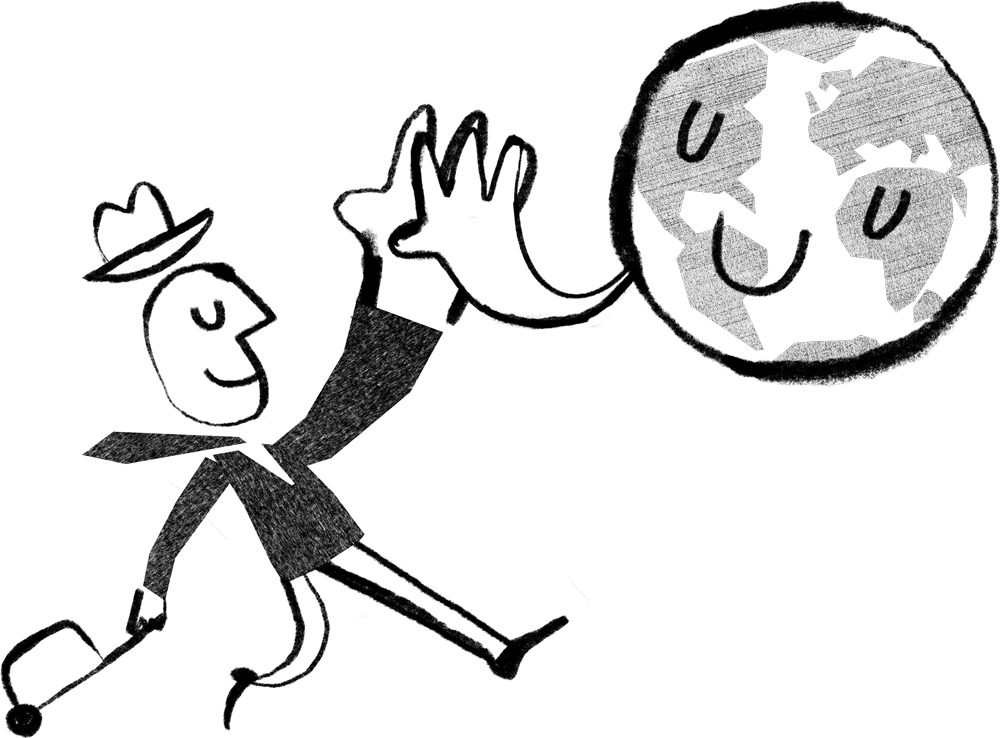
Would you also like to join the movement and become a partner with your company? We guide you through the process.
GoodUp: Assessing whether the time is right to enter the German market
Project Case
GoodUp: Assessing whether the time is right to enter the German market
Challenge
Is the time right for software empowered employee engagement in Germany?
Is it the right time for software empowered employee engagement when German companies struggle with digital transformation because of absence of digital culture and German employees are reluctant to use software?
For GoodUp, we were out to answer a set of highly specific questions in order to de-risk GoodUps endeavour to enter the German market. We knew that awareness for emotional employee engagement among German managers is low although German companies are slightly over average in terms of employee engagement.
Process
Focusing to achieve a lot with few resources
Expansion.eco conducted an analysis of the current and potential market size for employee purpose engagement software per vertical in Germany. In addition, we analysed the momentum/ appetite for the product (company purpose/ CSR/ sustainability). We were looking for main industry drivers and trends for purpose/sustainability employee engagement in Germany and looked to understand the appetite for the product:
- What is the perception of the importance of employee engagement on company purpose/CSR/sustainability?
- How do German companies organize this?
- Will the business model be attractive for the prospect?
- Furthermore we developed a long list of prospects, looked at the decision making processes in German corporates and looked out for Red Flags (What risks and hurdles do we need to tackle (buy in workers council, SaaS appetite, business culture, IT requirements, certification pre requisites, procurement negotiations)?)
Last but not least, we validated the Market entry requirements leading to a full management presentation to influence decision making within GoodUp.
We analysed what the relevant entry model would be in terms of sales approach and hiring policy and what the expected business case / ROI would be following that approach. The expert interviews have given us hints where to look further and which blind spots, specifically for the German market, are still to be looked closer at.
Result
Valuable and actionable insights for making the right decision.
Based on the feasibility test and the recommendations made by Expansion.eco GoodUp decided to delay their plans for the German market and focus on the countries that appeared to be more ready for the proposition of GoodUp.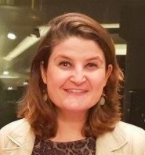
WakaWaka: Global sustainable energy with a focused market strategy for Germany
Project Case
WakaWaka: Global sustainable energy with a focused market strategy for Germany
WakaWaka is a B Corporation based in the Netherlands with the mission to provide sustainable energy access for all. For the German market launch, Expansion.eco was responsible for all trade marketing related matters and provided content management and creation.
WakaWaka was the launching customer of Expansion.eco in 2017 and went with us on a journey to bring their solar products to the German consumer.
Challenge
WakaWaka had to convince the German customer of its sustainable and ethical mission
When Expansion.eco came on board, WakaWaka had an English website that would ship internationally. But in order to target the German consumer successfully it was crucial to address them in their own language. As a first step, Expansion.eco made sure all materials were available in the German language, from websites over the product catalogus (online and offline) and sales and marketing materials.
As a purpose-driven company going for the “triple bottom line” WakaWaka does not only care about profits but also about the people and the environment they affect with their business. Thus, also WakaWaka faces greater challenges than conventional businesses because the product needs to sustain an organization as well as the mission behind it.
Process
Focusing to achieve a lot with few resources
We had to be extra aware of where the resources went to, so we devised a very focused strategy for the German market. We rigorously focused on the important actions, with the knowledge that over time leads to a second and third level of effects in the long run. Trade Marketing was what Expansion.eco focused on for WakaWaka. Besides recruiting a suitable distributor for the German market, in 2018 we attended two leading trade fairs (ISPO Munich, OUTDOOR Friedrichshafen) targeted at retail and wholesalers in Germany, as well as in the rest of the world. Besides being able to connect with key people in the German outdoor scene we were also able to test WakaWaka´s products and propositions on the German consumer.Accompanying the trade marketing efforts, Expansion.eco also focused on earned media for WakaWaka and getting the word out there. And as the cherry on top, Expansion.eco received an award for the efforts of WakaWaka in Germany.
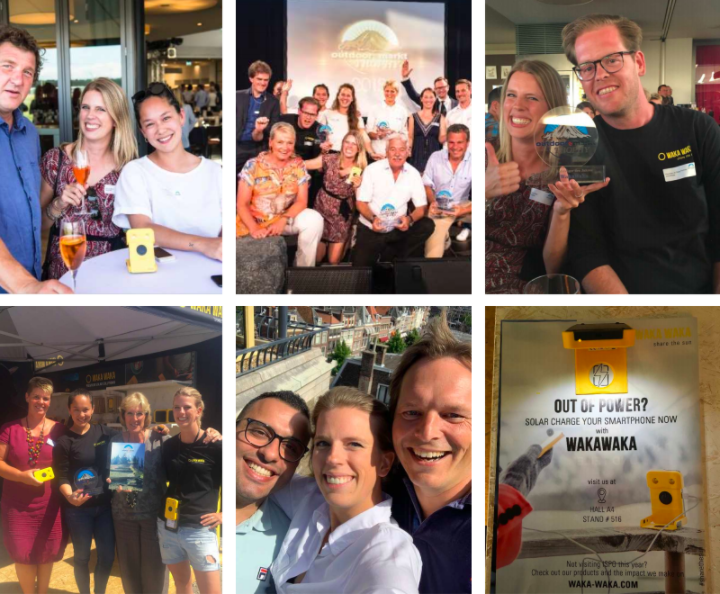
Result
A powerful start despite difficult circumstances
As a result, WakaWaka decided to make Germany one of the key countries to focus on for their global strategy going forward.
Due to recent developments in the organization of WakaWaka the company had to change strategy, which meant that Expansion.eco could no longer continue in Germany.
EDIT 2019: WakaWaka has made a restart now, we wish them all the best of luck with their plans and are ready to continue in Germany as soon as the company is back on track.
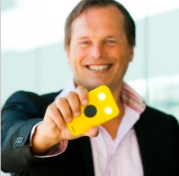
Moyee Coffee: Making every sip count – Expansion of Fairchain coffee to the German market
Project Case
Moyee Coffee: Making every sip count - Expansion of Fairchain coffee to the German market
Moyee Coffee is a Dutch coffee producer based on the FairChain philosophy. For the German market launch, Expansion.eco started with a Target Market Validation. As the outcome was highly positive, Expansion.eco subsequently deployed a sales and marketing pilot that served to lay the foundation for Moyee´s next investment round.
Challenge
Moyee did not know if the German consumer would be ready for a disruptive coffee brand.
In July 2019, Moyee Coffee, a certified Dutch B-Corporation, decided to take a closer look at the German market, knowing that the German coffee market has high potential but is also highly competitive.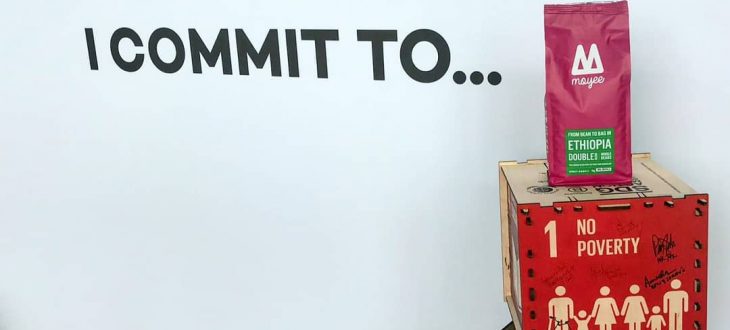
As the first step to assess if the market and Moyee itself was ready we narrowed down hypotheses.
- “Moyee’s main customers are conscious consumers and B2B clients”.
- “German conscious consumers are willing to pay € 30 per kilogram of coffee”.
- “Moyee can generate B2B leads through cold calling rather than through events”. “Moyee doesn’t sell unless you explain the concept.”.
- “Moyee stands out through great taste rather than radical impact”
Hypotheses like these guided us throughout the process.
Process
The target market validation confirmed our hypotheses and led to the execution of a complete expansion project.
For Moyee, we visited 50 cafés, co-working spaces and offices in different Berlin neighborhoods and talked to roughly 100 people, of which many are industry experts, key influencers of the local coffee scene and of course, lots of coffee-lovers. Many insights came as a surprise and were guiding to the strategy that was laid out after.
Most important, although the German coffee market is competitive, there was not yet a coffee brand combining high quality coffee with radical impact. Moyee could be sure to be capturing a niche.
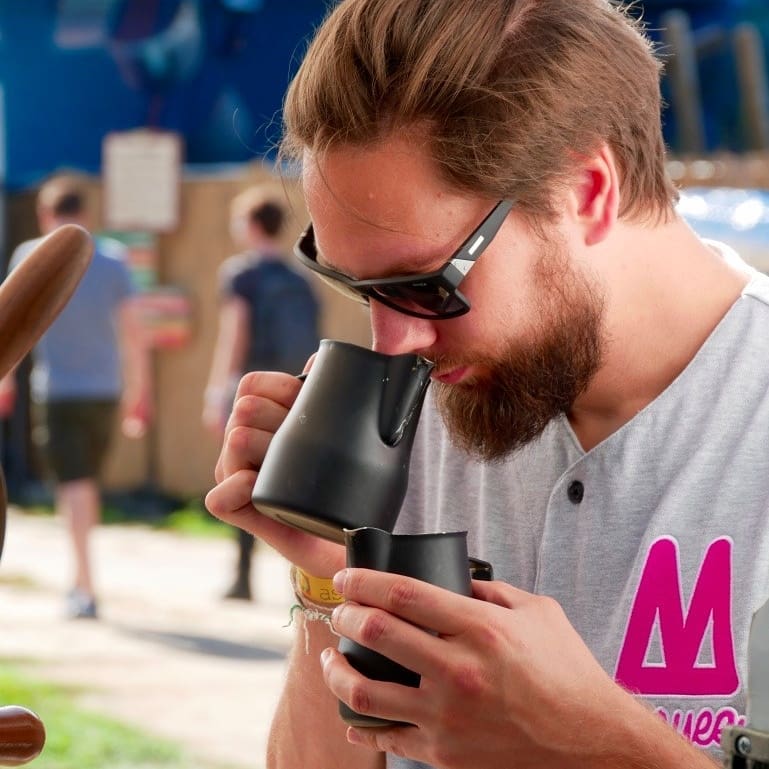
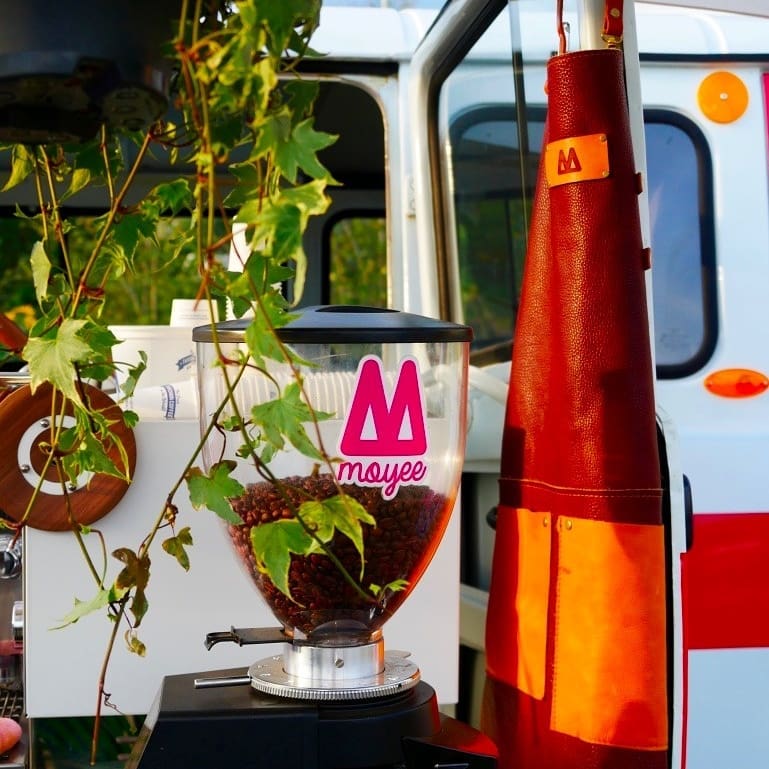
Moyee’s pilot project was conducted within a time frame of 4 months, having tested various channels, target groups and messages. Moyee was most successful in lead generation after personal contact with potential customers, be it through networking events, speaking opportunities, on trade fairs or coffee tastings.
Result
A B2B strategy was the most promising way into the hearts of the German consumers.
After this experience, Moyee’s entry strategy focused on B2B channels (offices and partnerships), generating leads through coffee tastings. According to the business case, this was the most promising way to break even as soon as possible.
Setting up the business in a new country requires a lot of consideration, especially when handling a physical product. Hiring a German native, finding office and storage space as well as a good fulfillment provider are all must-haves before selling the first bag of coffee.
Key is to start as lean as possible. It can be helpful to partner up with a third party such as a distributor or an agency that can take care of these steps since they bring along experience and local market knowledge.
Edit: Due to Corona we addapted the strategy and shifted quickly from B2B to B2C in 2020.
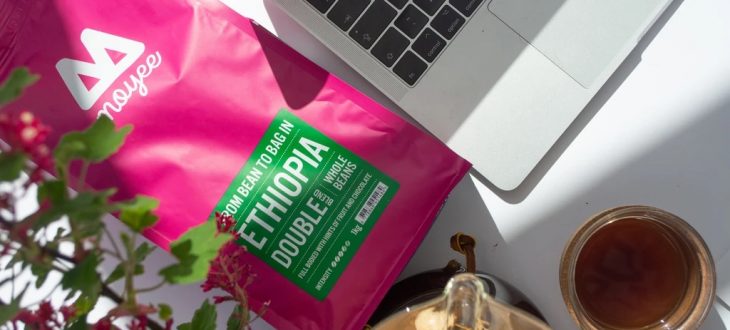
Seepje: Getting sustainable detergents fit for German market within 6 weeks
Project Case
Getting Seepje’s sustainable detergents fit for German market within 6 weeks.
Dutch company Seepje is a purpose-driven producer of sustainable detergents. Well established in BeNeLux, Seepje had the opportunity to grow it’s business in Germany. For a year their dishwashing liquids were exclusively sold at organic retailer Alnatura. Now a deal with drugstore giant DM was within reach and Seepje’s product portfolio needed to get fit for mainstream German customers.
Challenge
Identify best market fit for mainstream market
Seepje started their expansion to Germany on their own. An exclusive contract with the organic supermarket Alnatura enabled them to put their dishwashing liquid with the two fragrances “Erfrischender Limetten Duft” (lime) and “Belebender Zitrus Duft” (grapefruit) into shelves.
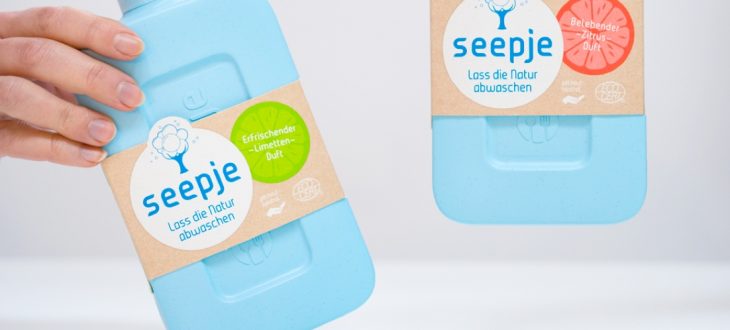
That year at Alnatura, Seepje’s all-purpose detergent with best environmental friendly ingredients was introduced to ethical customers. Now that a deal with the drugstore giant DM was in prospect, Seepje had to make sure their products appeal to mainstream German customers, too.
Process
A sniff test and an acceptance test brought interesting data
We went to markets and other places where we found our precisely defined target group. A sufficient number of 260 people were approached and took part in the test.
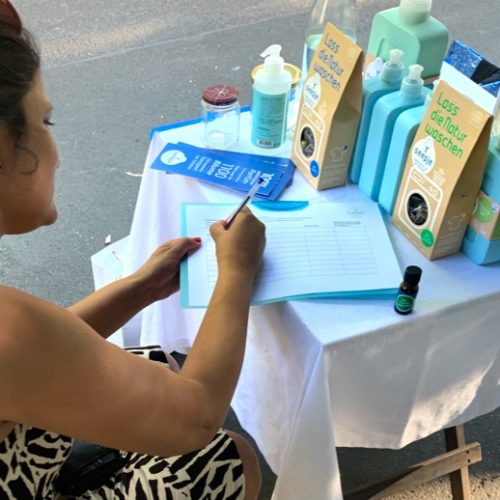
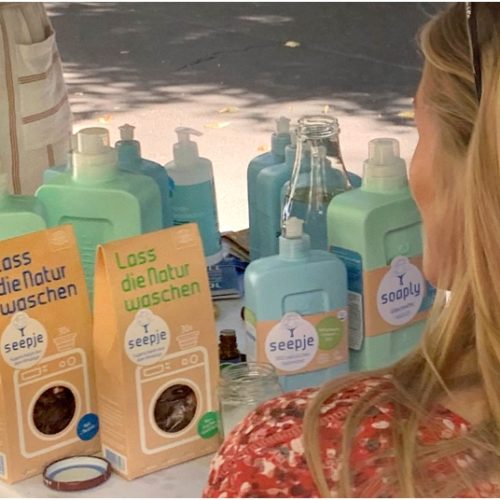
Our in-market research was a mix of qualitative interviews on the street and quantitative research in the form of online surveys. On the street, existing fragrences were tested along new creations. Out of the vast data we gathered 20+ key insights.
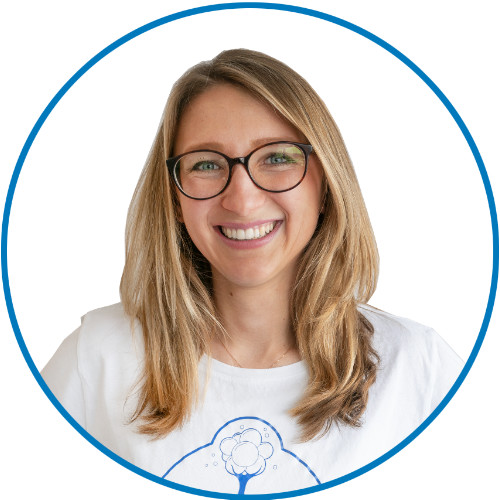
Result
A clear basis for decision making emerged
The testing yielded a winner: new fragrance Cucumber – Aloe Vera was well liked and gave Seepje the opportunity to adjust their portfolio for German customers.
As part of the acceptance test, the name of the product, the brand name for Germany, the packaging design and the labeling were tested. Expansion.eco provided actionable advice based on real market insights and Seepje could decide to keep the original two fragrances at organic stores like Alnatura and to add the new fragrance to the drugstore portfolio.
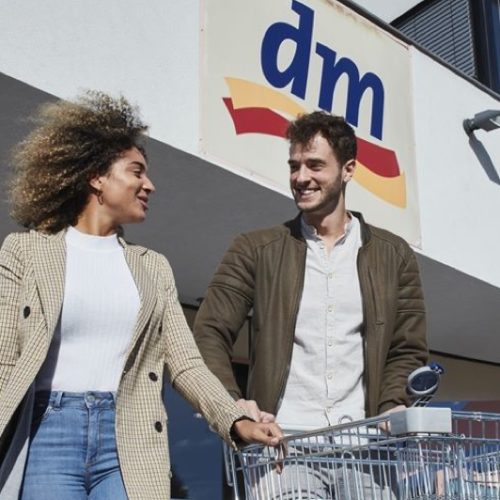
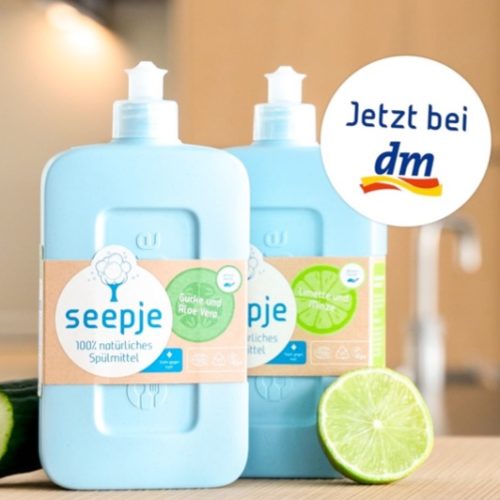
Expansion.eco helped to make the right decisions for Seepje´s continuing journey to the German market. After only 6 weeks of the project, Seepje had clear recommendations for action at hand and was good to go with German drug store DM.


